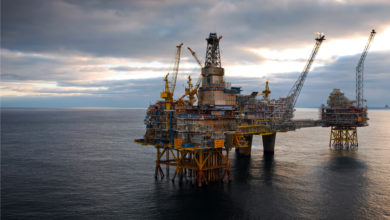Who has the economy’s back?

The release last week by the finance ministry of the “Public Consultation on the Draft 2023 – 2025 MTEF/FSP” confirmed what most critics of the Buhari administration have long feared. By acts of omission ― tentative attempts at reforming the economy frustrated in the end by the government’s dirigiste take on business and economic matters ― the incumbent government failed over its two terms to boost domestic economic activity. By acts of commission ― especially an addiction to borrowing money ―the Buhari government has led the economy back to a state that in the early 1980s was described as one of “debt peonage”.
Aside from these observations, the document made for instructive reading. Domestic echo chambers make so much of the deep economic contraction in 2020, as the pandemic ravaged the global economy. But often, this reading of the pandemic-related crisis only serves to conceal another unpleasant fact. Long before SARS-CoV-2 struck in the second quarter of 2020, the Nigerian economy was already treading deep waters. Growing by 2.55 per cent year-on-year in the final quarter of 2019, before dropping to 1.87 per cent in the first quarter of 2020.
Also Read: Floating the naira, before it sinks
This evident softness long before covid, makes it worrisome that having emerged from the deep-end that was 2020, domestic output growth has since the second quarter of last year trended down. Few of the main contributors to the welfare of the economy have done well at all. Crude oil prices are up globally. But somehow, Nigeria has contrived to produce less than its installed capacity over the last five years, and, shockingly, less than its Organisation of the Petroleum Exporting Countries (OPEC)-assigned quota since the beginning of this year. I am not too sure what to make of this. But it matters that the government is comfortable with the explanation that the “NNPC attributes the fall in oil production to the high incidence (of) crude oil theft and pipeline vandalism”. Sadly, the report offers no similar explanation for the fact that domestic prices have been rising relentlessly, even as the naira’s external price plumbs newer depths.
Unsurprisingly, the report puts a rosier gloss on the dismal performance of the economy, preferring, instead to see the economy as sustaining “its recovery from recession for the fifth consecutive quarter, growing by 3.11% in real terms in Q1 2022”. “Wailers” could point out that 3.11 per cent year-on-year growth rate is suboptimal for an economy with a potential trend growth rate of about 7 per cent. The more churlish of them could add that the demographics of the economy ― large cohorts of unemployed youths, a strong birth rate, etc. ― are not helped by growth rate below 10 per cent annually.
Also Read: When An Irresistible General Meets Immovable Lawlessness
Much the bigger concern, however, is the question: “At what cost, this paltry growth rate?” If the first four months of this year are anything to go by, we have expended more on the economy than we have managed to tease out of it. The finance minister reports that “Revenue continued to underperform in the four months to April 2022. Largely because of the crisis in the upstream oil and gas industry. But again because non-oil taxes also fell below targets”. At 49 per cent of the prorata target of N3.32 trillion for the period, the N1.63 trillion that the federal government earned as revenue just about reflected the omission part of how poorly the incumbent administration has managed things. If low revenue levels point to the difficulties the Buhari administration has had firing up this economy, the expenditure numbers graphically underscore the burdens it has saddled the economy with in the process.
Also Read: Nigeria and IMF’s roseate outlook, By Uddin Ifeanyi
At the beginning of the year, the plan was for the federal government to spend N17.32 trillion this year. In the end it managed to spend N4.72 trillion of the N5.77 trillion target for the first four months of this year. In the light of revenue underperformance and near target spend, put differently, much of the spend by the federal government in the first four months of this year was unfunded. So much so that we spent N1.94 trillion just paying interest due on this borrowing in the four months to end-April 2022. And the N773.63 billion spent on capital expenditure over the period? Evidently, not enough to lend a fillip to the economy. Most probably spent on items whose costs have not been covered by their benefits. In other words even this positive might be a key part of the problem with the economy.







